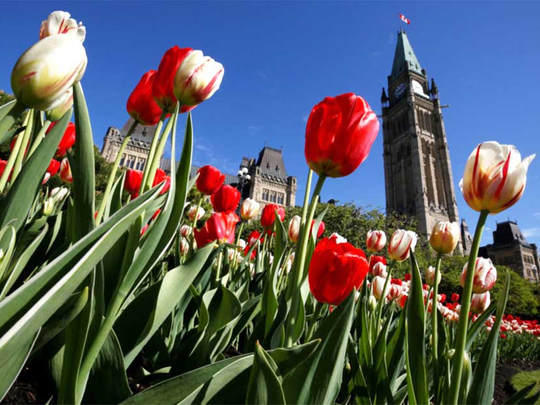
It was funny when my brother-in-law informed us, very matter-of-factly: “We have ascertained the time for the baby’s birth at 8:24am.” Obnoxiously superstitious, he had fixed that auspicious hour after consulting a holy man! So where was that element of excitement here? Didn’t they say all good things come unexpectedly? And now that we know it’s going to be a baby boy, the nursery is all decked up ... it is going to be a “super-hero” themed one! Is the element of surprise nearing extinction?
As I type this, auto-predict second-guesses me, killing choices and surprises. The age of artificial intelligence in active collaboration with the upsurge of technology, drives away any possibility of the unexpected. I just heard an alarm on my son’s phone, and when I asked him what the reminder was for, so late at night, I was “alarmed” to hear, “It was my reminder to sleep!” Thus everything is predetermined — our sleeping patterns by sleeping pills and the alarm clock, our days by the industrial rhythm of the workplace (targets and deadlines), our choice of eateries and taste in fashion by current fads doing the rounds on Page 3 of leading dailies, our reading habits by bestseller lists and media hard-sell, the music by how much they are capable of noisily gyrating us on the dance floor, the hierarchy of our relationships by the way we arrange numbers on our speed dial and social gratification!
Sometimes I feel that I am mechanically travelling along the road of life, my movement ascertained by the traffic lights, so cleverly synchronised and programmed!
Is this why we go to nature, to be surprised? A friend of my friend is of the opinion that nature is the shorthand for what passes for the conglomerate of plant and animal life. The unexpected bloom of a bud that greets you as you wake up fills the heart with so much joy; the newly-hatched chicks that you find in the nest in the verandah, make you perform that happiness-jig! That uncanny feeling of wonder is aroused when you try to decipher the shape of moss colonies on damp walls or the cottony clouds that float across the sky — how they stroke our imagination, and how we conjure up animals and faces and maps of countries. Fallen flowers, fallen from rain, fallen from age — tracing the margins of the tree, how they make us smile at their artfulness. The mango-giving tree of this year might not produce a single fruit next summer.
On my visit to Singapore, I came across a beautiful and mechanically planted growth of tulips and marigold — the sanitised rows of flowers bobbed their heads about in robotic abandon! William Wordsworth had perhaps seen a similar collective of yellow a little more than 200 years ago: ‘... A host of golden daffodils ... they stretched in never-ending line, along the margin of a bay ...’
But there is a difference between Wordsworth’s ‘ten thousand saw I at a glance’ and my initial surprise at the ‘never-ending line’ of flowers planted with scientific precision. No gardener had planted the daffodils ‘along the margin of a bay’; the roadside flowers had been engineered into being a collective, a series, by bureaucracy, perhaps for no other reason except their indulgence to the eye. This had dwarfed the capacity for surprise. The trees by the road near a golf club, as I drove past them, suddenly turned into soldiers in uniform, performing a designated task — like the march past is supposed to stir some emotion, the trees, too, were meant to perform a duty — to entertain travellers. There is a difference between men in uniform and stars in the sky. Each unit is related to the other in some way, and their optic similarity is meant to stress that relation, while fatigues bring us no surprise; not all the stars twinkle in the same way every day.
Or is it that changing lifestyles have made people averse to surprises and thus they are doing away with them? Samira, an enthusiastic mother, visited her daughter, who lived in another city, on her birthday, as a surprise. However, she was disappointed at the reaction of the daughter. She wasn’t too happy about her mother visiting her “out of the blue” as it breaks the rhythm of her routine and well-planned life. I for one love it when a neighbour or friend just pops in for a cup of tea, this feeling of warmth and love is so satiating! But sadly, most people do not appreciate this barging in. It is called “the invasion of privacy”.
Surprise adds that icing like zing to beauty, which is why chance, even coincidence, is exciting. A child’s words but not a politician’s spin. Rain but not a shower in a bathroom. Flowers that wither and die, but not their likeness in plastic. And isn’t it for surprise that we go to a forest and not a park?
Navanita Varadpande is a writer based in Dubai.










